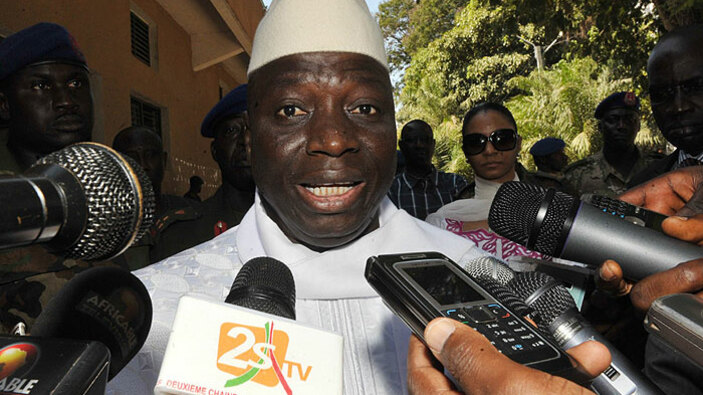Two transitions: America and Gambia
On Friday January 20th, Donald Trump became the 45th president of the US after he won the presidential race in November. At the inauguration of the new president, the outgoing president Barack Obama peacefully handed over power to a man who was least expected to win.
By David Mukholi
Two countries went to the polls in 2016. One is having a smooth transition from one president to another, the other is not. Instead it is on the verge of war as neighbouring countries threaten to forcefully eject the incumbent, who is holding on to power.
On Friday January 20th, Donald Trump became the 45th president of the US after he won the presidential race in November. At the inauguration of the new president, the outgoing president Barack Obama peacefully handed over power to a man who was least expected to win.
Even though Obama campaigned hard against Trump and would have wished for a different result, he is constitutionally bound to hand over to him, he could not do otherwise. The discomfort of handing over to Trump, a controversial Republican, is human, but also inevitable because he won.
The 2016 race for the White House is billed as the most aggressive in US recent history. Flays of violence, racism and intolerance came to the fore during the campaign as the Republicans and Democrats battled during the campaigns. In the end there was a winner who takes oath today and begins his first term.
It was a different story in Africa. Yahya Jammeh should have handed over power to opposition leader Adama Barrow on Thursday January 19th, but he did not. In the December election, Jammeh initially conceded defeat only to back-track and claim the election was rigged.
 Gambian leader Yahya Jammeh
Gambian leader Yahya Jammeh
Having won previous elections in 1996, 2001, 2006 and 2011, Jammeh met his end in 2016 polling 36.7% as his rival Barrow secured 45.5%. The result is testimony that incumbents can also lose contrary to the African belief that they always tinker with the results. After tumultuous reign of tyranny Jemmeh could not survive the wrath of the electorate and they voted him out.
His immediate response to the verdict was right. Not only did he concede, but also described the elections as transparent and promised to hand over power.
He publically said: "I take this opportunity to congratulate Mr Adama for his victory. It's a clear victory. I wish him all the best and I wish all Gambians the best. As a true Muslim who believes in the almighty Allah I will never question Allah's decision. You Gambians have decided."
But he changed his mind and announced he would petition the Supreme Court, but it cannot hear the case immediately because it is not fully constituted. In what is now emerging as disrespect for the people's verdict, Gambia's National Assembly passed a resolution allowing him to stay in office for another three months.
Jammeh late decision to challenge the results is a gamble. He hoped to use parliament and the courts to have fresh elections claiming his supporters were turned away during voting. The election body accepts there were some errors which were addressed, but these didn't affect the outcome.
The likely outcome of Jammeh's stance is a military intervention from the West African countries which over the years have shown intolerance to military coups and political adventures by politicians in the region.
In one part of the world, in the US, you have a smooth handover of power and in another, in Africa, it is chaotic. Tensions are high, foreigners are reportedly evacuating as war looms and the country is divided, with pro-Jammeh and pro-Barrow supporters standing poised to clash.
The army is equally divided, with the West African regional block (ECOWAS) threatening to invade and forcefully remove Jammeh. This conjures up a case of two countries in the same world, but differing in politics. Partly, this explains why one is developed and the other is still developing.
The US has democratically matured over 240 years. Periodic elections have established a basis under which a leader is chosen and another exits. Whatever the circumstances, no leader can cling on to power after his or her term expires or loses an election. Out of this, a strong country has been built. Elected leaders clearly know that they will be rejected later if they do not perform. So they work hard to fulfill their electoral promises.
Becoming president in a country like the US is an enormous responsibility. It is not about show and demonstration of how much power one holds. Or just being in power for the sake of it like Jammeh is demonstrating. It is also possible that he could be holding on for fear of being prosecuted especially when the president-elect did not reciprocate Jammeh's conceding with magnanimity, but instead hinted at trying him for past wrongs.
Every individual who takes office of president in the US, just like the parties they represent, have one objective, to keep the power, of course legally, by developing the country to win the next election.
From the two election and transitions we have the US representing developed and democratic countries where the constitution is respected. Here a president can't cling on power.
Gambia represents the other side of politics, where the people's verdict is yet to be respected. This happens in countries which are developing and learning how to be democratic with weak institutions.